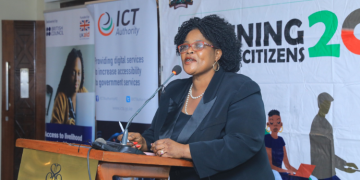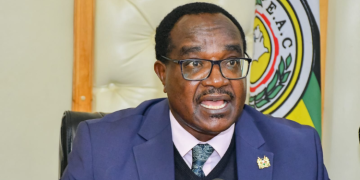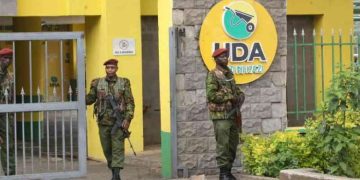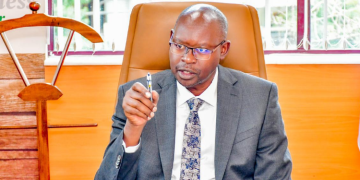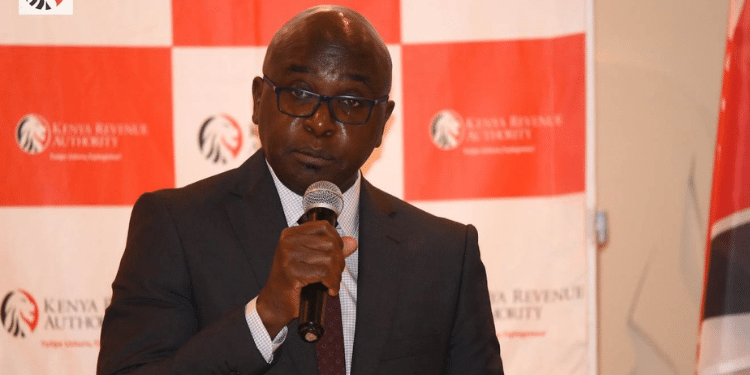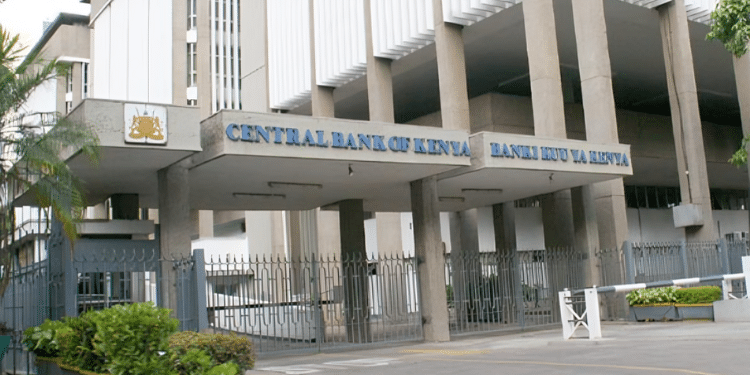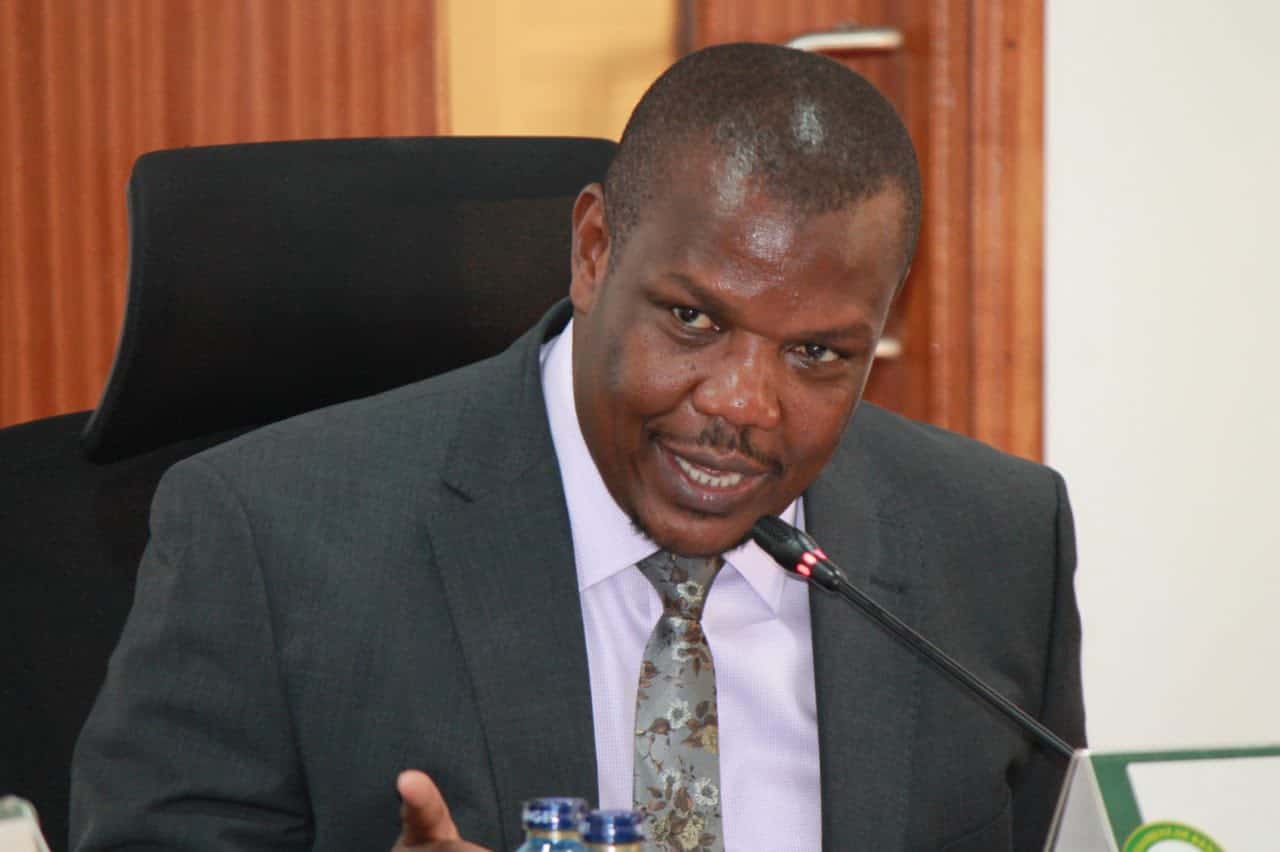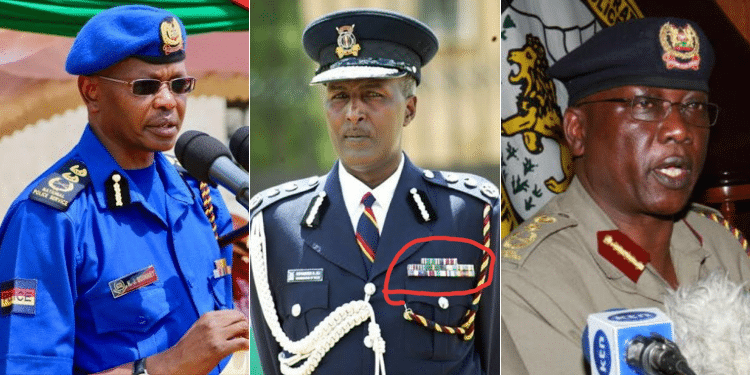The Inspector General (IG) of Police is the head of the National Police Service in Kenya (NPS).
The position was established in 1964 as the commissioner of police but was renamed to IG in 2012.
An IG is appointed by the President with the approval of Parliament and serves for a four-year unrenewable term.
Since its establishment, fifteen different individuals have held the position: five under the new Constitution and ten under the old Constitution.
Japhet Koome Nchebere is the immediate former police IG who was appointed by President William Ruto in September 2022 after he won the elections.

Hillary Nzioki Mutyambai
Former President Uhuru Kenyatta appointed Hillary Mutyambai the takeover IG’s office in 2019.
Mutyambai joined the police service as a junior officer in 1991 before being promoted to Superintendent of police.
He joined the then Directorate of Security Intelligence in 1998 and rose to become the Deputy Director in charge of Counterterrorism in the National Intelligence Service (NIS).
Before becoming the IG, he was the Deputy director of National Intelligence Service (NIS).
In September 2022, President Ruto announced that he granted Mutyambi’s request to go on leave for the remainder of his tenure due health complications.
His term was to end on March 2023, but he was replaced by Koome the same month.
Since leaving the IG position after the hotly contested general election, Mutyambai has stayed out of the media.
Joseph Kipchirchir Boinett
Joseph Kipchirchir Boinet was appointed IG on December 31, 2014, but took over office on March 11, 2015.
Prior to his nomination, he served as the NIS Principal Intelligence Officer based at the headquarters in Ruaraka.
It was during his tenure that the Administration Police (AP) and the Kenya Police were merged.
Boinnet left the IG’s office officially on March 11, 2019, exactly four years after completing his constitutional four-year term.
He was appointed as the Chief Administrative Secretary (CAS) at the Ministry of Tourism and Wildlife.
Boinnet took the oath of office as CAS in April 2019 during a ceremony that was held at State House, Nairobi.
He resigned in February 2022 to embark on campaigns for the Elgeyo Marakwet governor’s seat.
He however lost the UDA primaries to Alex Tolgos who eventually won the seat.

David Mwole Kimaiyo
David Kimaiyo was the first IG when the position was created to replace the position of Police commissioner.
Kimaiyo applied for the position in 2012 and was interviewed by the NPSC where he emerged as the best candidate.
He was then appointed by President Mwai Kibaki , approved by parliament and took his oath of office on December 24, 2012.
He however resigned on December 2, 2014, alongside then Interior Cabinet Secretary Joseph ole Lenku after an attack in Mandera in which 36 people were killed by terrorists.
Afterwards, Kimaiyo was appointed as Kenya Airports Authority (KAA) chairperson the same month.
His appointment was however revoked in June 2016 and when former Chief of Defense Forces Julius Karangi was picked to serve until January 2018.
Also Read: Where Are They Now: Former Africa Union Commission Chairpersons
In September 2016, he declared his ambition to face CS Kipchumba Murkomen in the Elgeyo Marakwet county Senate seat in 2017.
He bounced back to the limelight in June 2023 when he urged the government to tackle the root causes of insecurity in the Kerio Valley belt.
In an interview with a local newspaper, Kimaiyo explained that the government should invest in a comprehensive strategy that goes beyond fighting bandits in the region.
Kimaiyo called for an investigation into the lack of political goodwill exhibited by some leaders in the region, which he said hindered the government’s efforts to stop insecurity in the region.

Rt. Major General Mohamed Hussein Ali
Late president Mwai Kibaki appointed Hussein Ali to the position of commissioner of the Kenya Police in 2004.
Ali is remembered for disbanding then feared Kenya police Reserve and authorizing a mass clear-out of top police bosses.
He faced huge criticism from human rights activists after his crackdown on the Mungiki group in 2007 resulted in the killing of hundreds of youths linked to the outlawed gang.
Hussein Ali was again on spot after he was accused of ordering police officers to use excessive force against supporters of the opposition Orange Democratic Movement (ODM) in the 2007/2008 post-election violence.
He was transferred from his position as Police Commissioner to the chief executive of the Postal Corporation of Kenya On 8th September 2009.
Also Read: Where Are They Now? 10 Last AFCON Golden Boot Winners
He was among the six Kenyans summoned by then International Criminal Court (ICC) prosecutor, Luis Moreno-Ocampo, on December 15, 2010, in relation to the events that led to the post-election violence.
Human Rights Watch report revealed that gunshot wounds, most likely from police guns, were the biggest single cause of death among the fatalities.
In 2012, the ICC pre-trial Chamber II said they were not satisfied with the evidence the prosecution provided to prove that police had participated in killings.
The Chambers ruled that the evidence provided by the prosecutor had failed to prove that Ali had given shoot to kill orders and he was freed.
Ali retired in 2012 after serving for four decades in the civil service.



